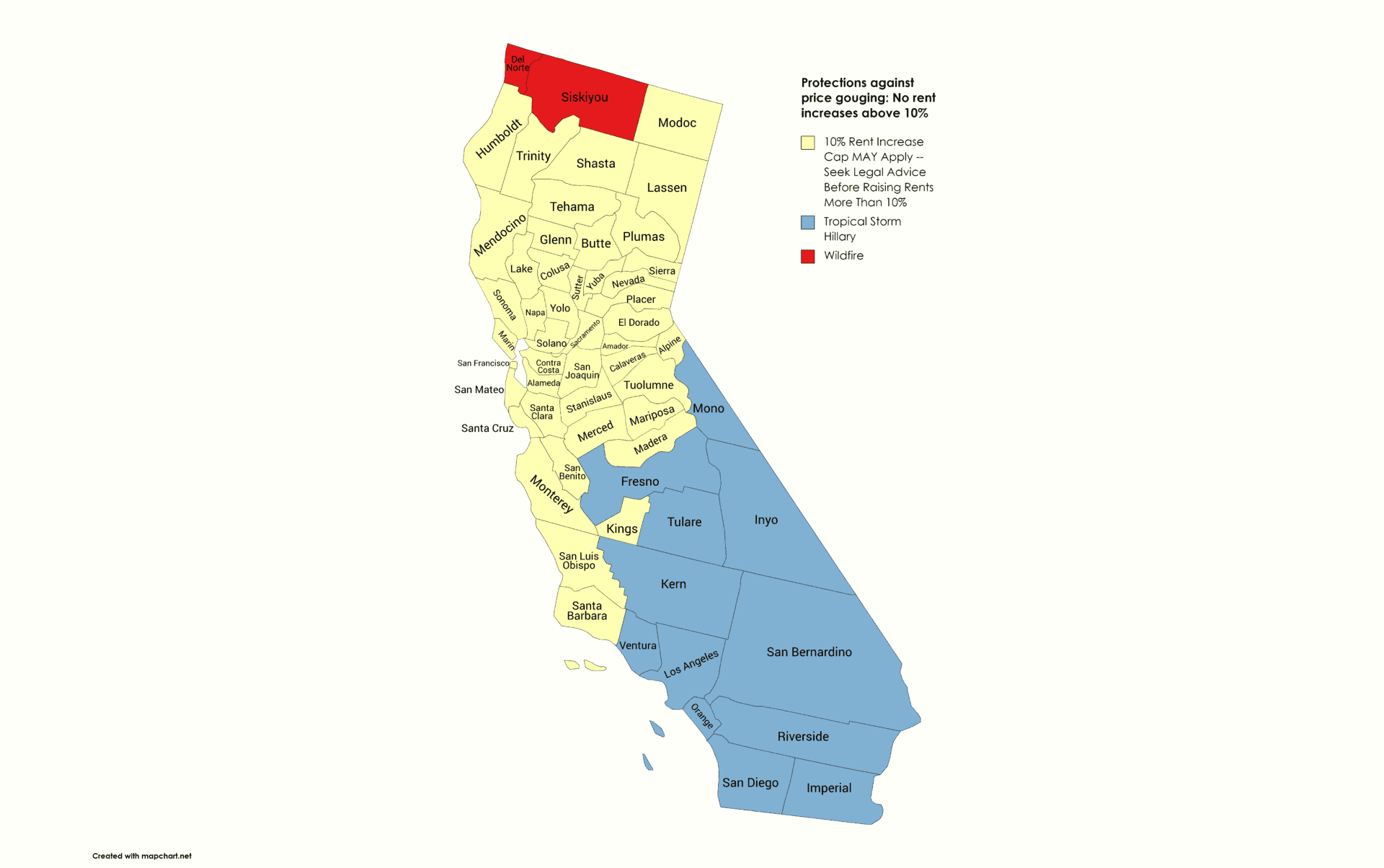Gov. Gavin Newsom on Tuesday, Aug. 29, proclaimed states of emergency in Del Norte and Siskiyou counties due to ongoing wildfires, specifically the Smith River Complex fires in Del Norte and the Happy Camp Complex fires in Siskiyou. This action has once again activated California’s anti-price gouging law, Penal Code Section 396, which is in effect until Sept. 28 but may be extended.
The law makes it illegal to increase the price of many consumer goods and services, including rental housing, by more than 10% above pre-emergency levels during a state of emergency. Such rent increase limitations apply to existing tenants and to unit turnover. Violators could face penalties including fines and jailtime.
Earlier in August, Newsom declared a state of emergency in 12 other counties due to Tropical Storm Hilary. That proclamation also triggered price-gouging restrictions affecting Fresno, Imperial, Inyo, Kern, Kings, Los Angeles, Madera, Mono, Orange, Riverside, San Bernardino, San Diego, and Ventura. These declarations are slated to expire on Sept. 18, with the exception of Mono County. The state of emergency in Mono County is set to expire on Sept. 19 due to a later date of declaration. The emergencies in these counties also can be extended.
Note, enforcement of the state’s price-gouging ban does not necessarily stop at the county line. California’s Attorney General’s Office has interpreted the price-gouging law to apply anywhere in the state with an increased consumer demand resulting from the emergency.
As a reminder, CAA does not currently track emergency declarations issued by local officials, which also trigger protections under the state’s anti-price gouging law. For local declarations of emergency, it is best to check with the applicable local authorities.

Double click on the map for full-size image.

